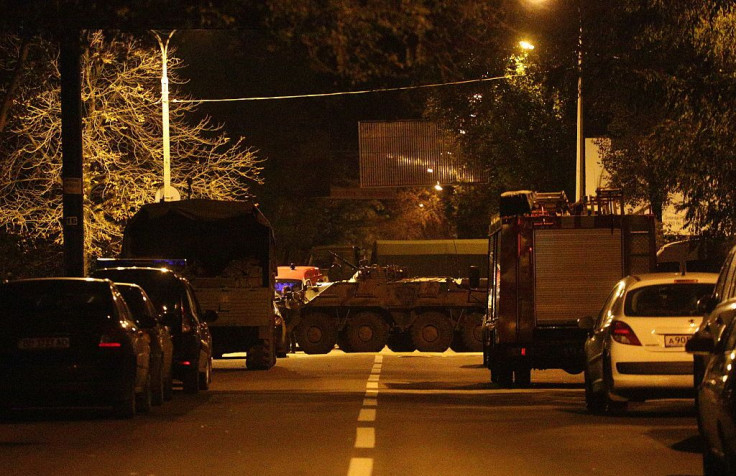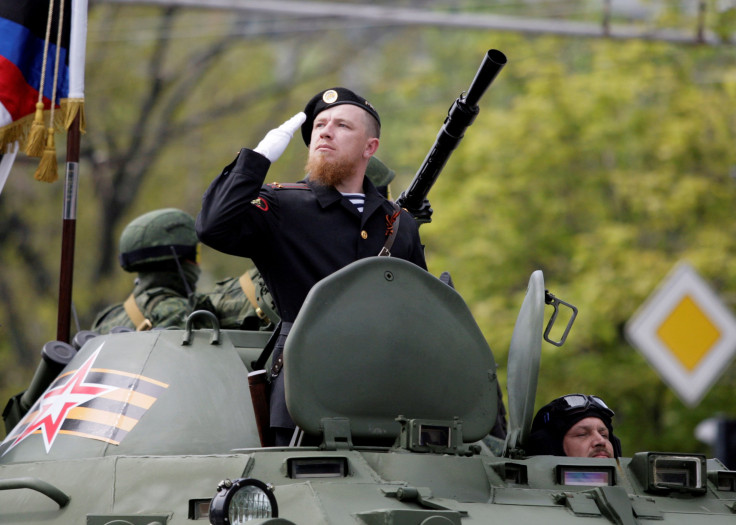Ukraine War: Rebel Military Leader Arsen Pavlov Killed In Donetsk Bombing, But Did Russia Or Ukraine Arrange His Death?

Pro-Russian rebels have accused a Ukrainian neo-Nazi group of assassinating one of their commanders in eastern Ukraine, BBC News reported Monday.
Russian-born commander Arsen Pavlov, known as “Motorola,” was killed Sunday by a bomb explosion in his apartment building’s elevator in the rebel-held city of Donetsk. Soon after, heavy military activity was seen around the scene of the incident as separatist authorities scrambled to discover who was behind the killing.
Russian journalist Alexander Kots tweeted a video Sunday evening allegedly from a Ukrainian neo-Nazi group called “Misanthropic Division.” The 11-second clip appears to show several armed men in military fatigues and baklavas take responsibility for assassinating Pavlov, who commanded the rebel Sparta unit. They then threaten to target Alexander Zakharchenko, prime minister of the self-proclaimed Donetsk People’s Republic and rebel leader Igor Plotnitsky.
Появилось заявление якобы убийц Моторолы pic.twitter.com/wd1YVmumBx
— Александр Коц (@sashakots) October 16, 2016
Zakharchenko called Pavlov’s death “an act of terrorism” and referred to him as “his close friend.” He also accused Ukrainian President Petro Poroshenko of violating a ceasefire between the government and the pro-Russian rebels.
“As I see it, Petro Poroshenko violated the ceasefire and declared war on us,” Zakharchenko said. “Mark my words, things will get thousands of times worse, harder for you than they are for us today.”
Misanthropic Division’s leader has denied any involvement in the video. Alexander Kokcharov, an analyst for IHS Jane’s 360, told Newsweek he believed the killing was an inside job, staged either by fellow rebels or directly by Russia. He doubted the ability of Ukrainian guerillas to conduct operations in Donetsk.

Pavlov was born in Komi, Russia, in 1983 and previously served in the Russian military in Chechnya before climbing the ranks of separatist groups in Ukraine. He participated in strategic battles in Ukraine such as the Battle of Ilovaisk and the Second Battle of Donetsk Airport in 2014. He was known for his brutality and admitted to the Kyiv Post last year that he had executed 15 Ukrainian prisoners of war.
“I kill if I want to. I don’t if I don’t,” Pavlov said at the time.
In 2014, a series of large, violent demonstrations ousted pro-Russian Ukrainian President Viktor Yanukovych. As the country began to form a new government, a combination of separatist rebels and Russian forces annexed the Ukrainian territory of Crimea and began occupying cities in eastern Ukraine. Since then Ukrainian forces, along with allied militias, have clashed with separatist rebels over territory. On Sept. 1, a ceasefire was negotiated, which both sides routinely accuse one another of violating.
© Copyright IBTimes 2025. All rights reserved.






















